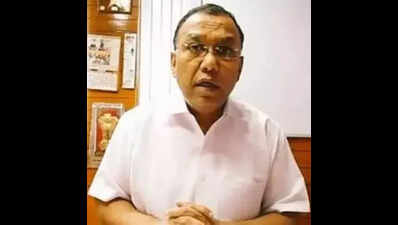Health
Collaborative Efforts Needed to Enhance Critical Care in UP

Efforts to enhance critical care in Uttar Pradesh (UP) must involve both government and private sectors, according to Amit Kumar Ghosh, the Additional Chief Secretary for Medical Health and Medical Education. Speaking at the National Conference of Nursing Emergency, Critical Care and Trauma Allied Responder (NECTAR) on March 15, 2024, Ghosh emphasized that improving the critical care system in the state cannot rely solely on government directives.
Ghosh outlined the necessity of forming partnerships among various stakeholders, including private and government medical colleges, leading hospitals, and emergency care providers. He noted that discussions on these matters are already taking place at the policy level. “Timely treatment is crucial for saving lives,” he stated, highlighting the role of organizations like SACTEM in ensuring effective emergency responses.
The challenges facing UP’s critical care system are significant. Ghosh identified urgent questions surrounding pre-hospital care, such as the quality of treatment patients receive while in transit and the delays in reaching trauma centers. He pointed out that many patients endure prolonged waits in ambulances, particularly those arriving from surrounding districts. Despite having 81 medical colleges—41 government and 40 private—spread across 60 districts, 15 districts in UP lack adequate intensive care facilities.
Ghosh raised concerns about the availability of care during emergencies, particularly in rural areas. “When emergencies occur in villages, what care will be available and when will first responders arrive?” he queried, underscoring the need for comprehensive policy discussions. He called for regular training of paramedical staff and greater collaboration with private intensive care providers to address these challenges.
Need for Regulatory Oversight and Training
General Administration Secretary Zuhair Bin Sagir proposed the establishment of a dedicated nursing regulatory body to oversee paramedic training and performance. He suggested creating a central portal for sharing critical care information, which would include real-time updates for families during road accidents. This initiative aims to improve communication and coordination in emergencies.
Dr. Mustahsin Malik, Head of Critical Care at Era University, stressed the importance of training ambulance staff to ensure that patients are transported to appropriate hospitals within the critical “golden hour” following an injury. This timeframe is vital for improving survival rates and outcomes for trauma patients.
Dr. Ali Khan, the university’s Additional Director, emphasized that paramedics should be empowered to provide care even in the absence of doctors. He noted that even small-scale technological advancements could significantly enhance medical care delivery.
During the conference, Dr. Lokendra Gupta, President of SACTEM, and Dr. Rakesh Kumar Goriya shared insights on strategies to strengthen the paramedic workforce. Their suggestions highlighted the importance of adequately equipping and training personnel to respond effectively in emergencies.
As Uttar Pradesh navigates the complexities of its healthcare landscape, collaboration between the government and private sectors appears essential for building a robust and responsive critical care system. The outcomes of these discussions and initiatives could play a pivotal role in improving emergency health services across the state, ultimately saving lives and enhancing patient care.
-

 World5 months ago
World5 months agoSBI Announces QIP Floor Price at ₹811.05 Per Share
-

 Lifestyle5 months ago
Lifestyle5 months agoCept Unveils ₹3.1 Crore Urban Mobility Plan for Sustainable Growth
-

 Science4 months ago
Science4 months agoNew Blood Group Discovered in South Indian Woman at Rotary Centre
-

 World5 months ago
World5 months agoTorrential Rains Cause Flash Flooding in New York and New Jersey
-

 Top Stories5 months ago
Top Stories5 months agoKonkani Cultural Organisation to Host Pearl Jubilee in Abu Dhabi
-

 Sports4 months ago
Sports4 months agoBroad Advocates for Bowling Change Ahead of Final Test Against India
-

 Science5 months ago
Science5 months agoNothing Headphone 1 Review: A Bold Contender in Audio Design
-

 Top Stories5 months ago
Top Stories5 months agoAir India Crash Investigation Highlights Boeing Fuel Switch Concerns
-

 Business5 months ago
Business5 months agoIndian Stock Market Rebounds: Sensex and Nifty Rise After Four-Day Decline
-

 Sports4 months ago
Sports4 months agoCristian Totti Retires at 19: Pressure of Fame Takes Toll
-

 Politics5 months ago
Politics5 months agoAbandoned Doberman Finds New Home After Journey to Prague
-

 Top Stories5 months ago
Top Stories5 months agoPatna Bank Manager Abhishek Varun Found Dead in Well









